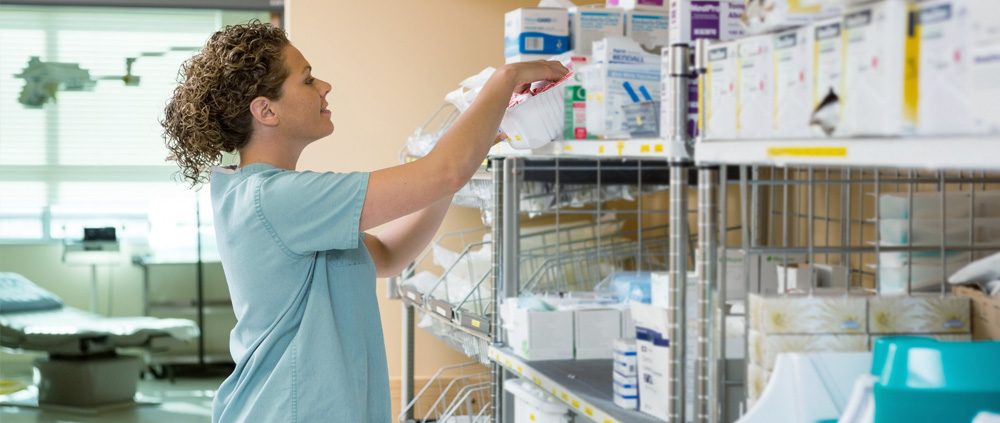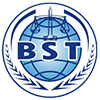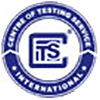Hospital Pharmacies Using RFID-Enabled Medication from QuVa Pharma
Medication compounder QuVa Pharma has teamed up with Kit Check to offer an RFID-enabled medication-tracking solution for its hospital pharmacy customers. The system QuVa is providing includes Kit Check’s passive ultrahigh-frequency (UHF) RFID tags embedded in prefilled syringes used to provide medication to hospital patients. Hospitals can then use Kit Check’s readers and cloud-based software to manage the medication syringes as they move around the premises.
Anesthesiologists often tailor medications to individual patients. QuVa makes such combinations in specific, commonly prescribed doses that are then sold to hospital pharmacies. As a compounder, QuVa can standardize the medication concentration for physicians and anesthesiologists, says Peter Jenkins, QuVa’s chief development officer, “so they don’t use half a vial and throw the rest out,” Additionally, he says, “the syringes we send have a much longer shelf life than ones drawn up locally.” Another advantage QuVa offers as a compounder, Jenkins adds, is that pharmacists do not need to compound medications on site, which reduces the chance of contamination.
Once pharmacists receive the medication from QuVa, they can be loaded onto crash carts or operating room trays, to be administered to patients in specific departments. The challenge for hospitals, the company explains, is to ensure that the trays or carts are always properly stocked, and that no medications are set to expire. For most medical facilities, that involves a 15- to 20-minute manual process each time a tray or cart is loaded or reloaded and then sent back to specific hospital departments. Pharmacy employees visually check each medication, including its type, dose and expiration date. In some cases, they utilize bar-code scans to capture data and create a record of what is on a particular tray or cart, explains Cameron Ferron, Kit Check’s chief product officer.
In the event of a recall, employees may need to walk to the OR department or some other area where the products are being administered, in order to remove any items that shouldn’t be there. QuVa Pharma’s first priority is patient safety, Jenkins says. With RFID in use as part of the kit-management process, he explains, “It means that not only are the operating room kits stocked accurately, but also that expired or recalled meds can be located quickly, no matter where they are in the hospital.”
Even with the manual method of inspecting trays or carts as they leave the pharmacy, Ferroni says, Kit Check has found that about 20 percent of hospital medication kits either have an expired medication, are missing a specific medication or contain the wrong drug. In some cases, that percentage has been measured as high as 67 percent.
With the RFID technology provided by Kit Check, the process of auditing the trays or other containers of medications takes one or two minutes. The tags are typically embedded into the upper right corner of the printed label affixed to each syringe. Kit Check uses two different sizes of RFID inlays, provided by Avery Dennison and embedded in three sizes of tags. Kit Check is capable of converting the inlays into labels, though QuVa is undertaking that process itself.
Once tagged labels are applied, the unique ID number on each tag is linked to data about a particular medication in Kit Check software. QuVa ships goods to its hospital customers, some of whom now employ the RFID system. They can use Kit Check’s cloud-based software-as-a-service (SaaS), which interfaces with the pharmacy’s own drug-management software.
The hospitals are using RFID-enabled devices from Kit Check with built-in Motorola FX9500 readers from Zebra Technologies or ThingMagic Sargus 2-port readers from Jadak. The reader boxes come in two sizes.
Hospitals load medications into trays according to specific departments’ needs, then place each tray into the box in the Kit Check Scanning Station. The reader captures the ID number of each tray’s RFID tags within about five seconds, and the Kit Check software compares the results against a template for that tray or kit. If any items are discovered to be missing or have approaching expiration dates or have been recalled, an alert is displayed on the device’s screen so that an employee can resolve the issue before the tray leaves the pharmacy. The then restock the kit to adjust for errors, and scan the kit one more time before dispatching to the receiving department.
QuVa has been shipping the pre-tagged products since late 2017, Jenkins says, adding that feedback has been good. The fact that the hospitals themselves do not need to apply RFID labels is an advantage for those who had already planned to employ RFID technology to track mediations.
“For hospital pharmacies, buying pre-tagged from QuVa Pharma is more efficient,” Jenkins states, “because they simply drop a tagged item into the kits they are sending to the operating rooms. They don’t need to go through the extra step of manually applying the tags.” What’s more, hospitals have reported that RFID technology use helps them to reduce waste. For one thing, they need not throw out as much medications that might otherwise expire, Jenkins says. “And if, by chance, there is a recall,” he notes, “they can track down those meds quickly before they get used.”
Over time, Jenkins says, pharmacists can become better at managing medication inventory so as to prevent expirations. “When you look at the data coming back to us from Kit Check about the usage levels,” he states, “you can see how the combination of custom compounding and RFID tracking is really supporting safety and inventory management in the pharmacies.”
QuVa had investigated the option of incorporating RFID technology into products in the past, Jenkins says, “but over the course of six to twelve months, several of our major customers started asking us about pre-tagging so they could make use of the Kit Check tracking solution.” At that point, he adds, the company took a second look into RFID, “and with all the advancements Kit Check has made, it became a really interesting opportunity.”
Multiple other companies are already using the Kit Check technology, Ferroni says, including hospitals that attach the tags themselves as medications are received from a supplier, as well as companies such as QuVa that provide RFID tagging on their products. In the latter case, he says, the use of RFID “becomes seamless for hospitals.”








Leave a Reply
Want to join the discussion?Feel free to contribute!